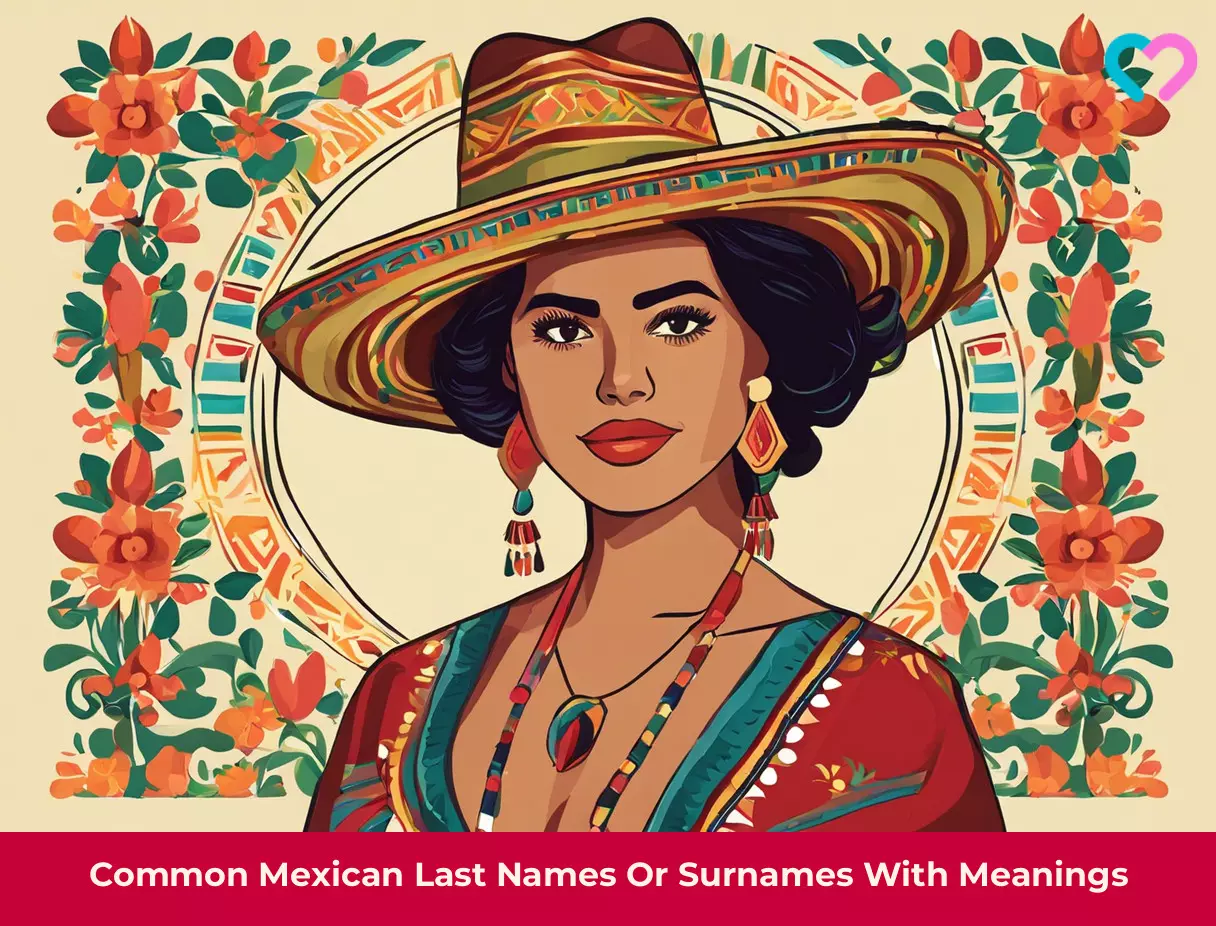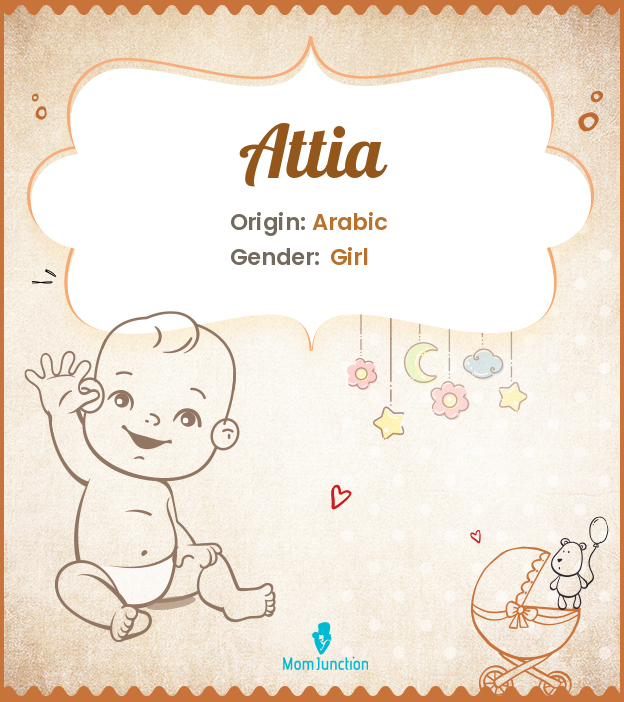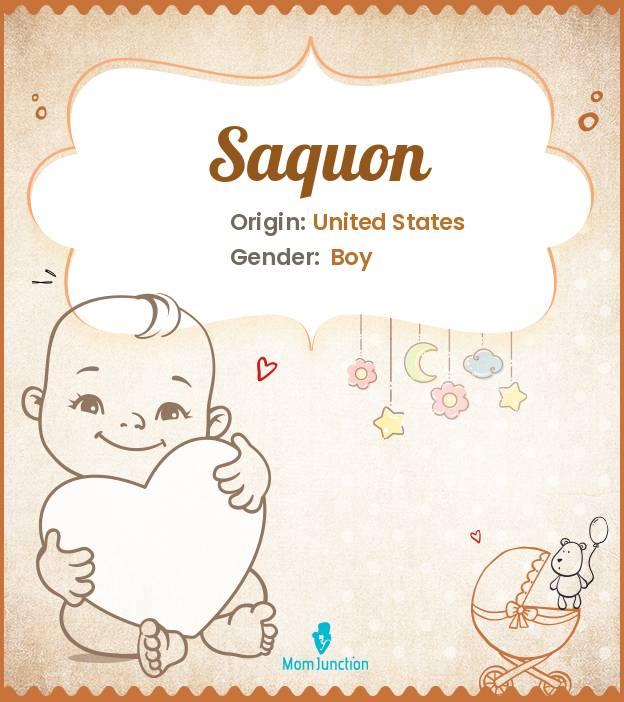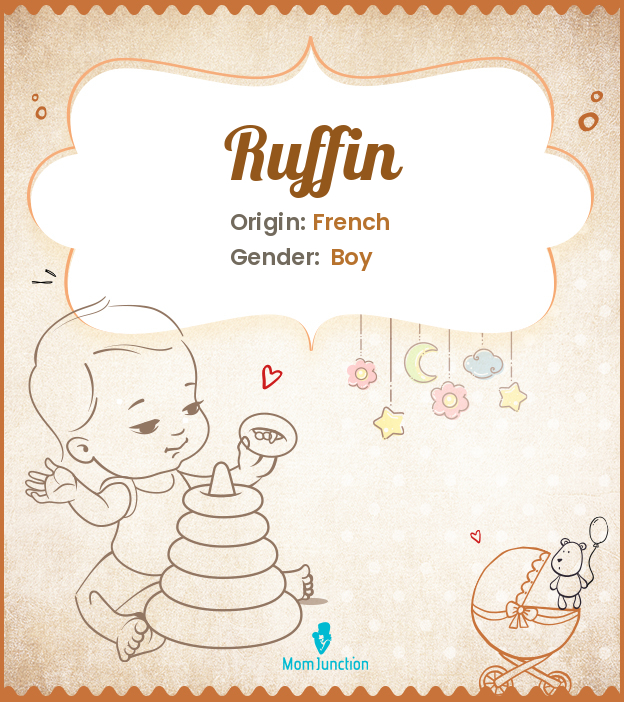
Image: Shutterstock
Mexico is the country where most Spanish-speaking people live (1). As a result, most popular Mexican surnames are either derived from Spanish or have originated in Spain.

Mexicans inherit two surnames: the first is their father’s last name, whereas the second is their mother’s. This trend ensures that surnames exist for at least two generations. Moreover, the parents of the child have the liberty to choose the father’s or the mother’s last name as their child’s surname. Understanding the cultural significance of these surnames reflects a rich heritage that traces back to the Spanish colonization of Mexico. This historical context shapes not only the names themselves but also the identities of those who carry them.
This post brings you a list of the most common Mexican last names, their meanings, and origins.
Key Pointers
- The most famous Mexican surnames reflect the country’s historical connection to Spain because of the Spanish colonization.
- Another unique feature of Mexican last names is that people generally have two of them; one from their father and the other from their mother.
- Mexican surnames such as Cuevas, Herrera, Molina, and Osorio are known for their geographical and occupational connections.
Naming Conventions In Mexico
Mexican names follow Spanish naming customs, with individuals having personal names followed by their father’s paternal surname and their mother’s paternal surname. People may have two personal names, but the first is typically used alone. The father’s surname is commonly used as the primary surname, while women may modify their names after marriage by adding their husband’s paternal surname with ‘de,’ as in Maria López de Ayala. The conjunction ‘de,’ meaning ‘of,’ is also used to disambiguate a surname. People sometimes use ‘y’ or ‘e’ in between their maternal and paternal surnames, ensuring their paternal surnames are not mistaken for their first name. For instance, Pedro de Góngora y Argote or Luis Dato e Iradier (2).
History Of Mexican Surnames
Mexican surnames represent an amalgamation of Indigenous, African, and Spanish influences. Before the arrival of the Spanish in 1519, Mexicans did not use surnames. The country was populated mainly by the Aztecs, Maya, Mixtecs, and other Indigenous peoples, who only used personal names connected to the calendar, nature, or important events.
Between 1519 and 1821, when Spain colonized Mexico, European naming conventions were imposed on native Mexicans. This led to the adoption of compound surnames (maternal and paternal) and the Christianization of first names, as many Indigenous people were converted to Christianity. During this time, four main types of surnames emerged:
- Patronymic surnames: Derived from the father’s name, as in Hernandez (son of Hernando) and Martinez (son of Martin)
- Geographical surnames: Derived from the place of origin, as in Navarro (from Navarre) and Castilla (from Castile)
- Occupational surnames: Derived from one’s profession, as in Herrera (blacksmith) and Molina (mill worker)
- Descriptive surnames: Derived from physical descriptions, as in Moreno (dark-skinned) and Pacheco (small)
Slowly, many hybrid surnames entered the common vocabulary with the blending of Spanish and Indigenous cultures. For instance, a surname like Moctezuma became Montezuma, or a person with a Spanish name combined it with their native surname to preserve their heritage, as in Juan de Xochimilco. Enslaved Africans also brought their surnames into the mix, and gradually, with other cultures assimilating into Mexico post-independence, European, Middle Eastern, and Asian surnames also entered Mexican naming practices. Thus, Mexican surnames today represent a mixture of colonization, cultural assimilation, and native resilience.
Patronymic Mexican Last Names
Patronymic surnames, derived from an ancestral lineage, are some of the most commonly used surnames in Mexico. Read on to learn more about how they came to be and which names they are derived from.
1. Alvarez
Alvarez is a patronymic surname meaning ‘son of Alvaro.’ The name is derived from the Latin equivalent of a Visigothic name meaning ‘all aware’ or ‘all guard,’ symbolizing protection and vigilance.
2. Bernal
It is the Spanish variant of the name ‘Baruch,’ which means ‘blessed’ in Hebrew. It is also a patronymic surname, meaning ‘son of Baruch.’
3. Diaz
Diaz is a popular Spanish surname with dual meanings. In its Castilian form, it is a patronymic surname meaning ‘son of Diego,’ but in its Latin form, it comes from a word meaning ‘days.’ This surname is most famously associated with the Spanish hero and ruler El Cid, whose real name was Rodrigo Diaz de Vivar (3).
4. Dominguez
It means ‘son of Domingo.’ The name Domingo is the Spanish form of the name ‘Dominic,’ which comes from the Late Latin name ‘Dominicus’ meaning ‘of the Lord.’
5. Enriquez
It means ‘son of Enrique.’ The name ‘Enrique’ is the Spanish version of the name ‘Henry.’ This name comes from the Germanic name ‘Heimirich,’ which is a combination of the Germanic elements ‘Heim’ meaning ‘home’ and ‘ric’ meaning ‘power’ or ‘ruler.’
6. Flores
Flores is a surname with Spanish, Portuguese, and Italian origins. It originated from the kingdom of Asturias as a patronym meaning ‘son of Fruela’ or ‘son of Froila,’ both derived from the Latin word for ‘flowers.’
7. Gomez
A popular Hispanic surname, Gomez is a patronymic meaning ‘son of Gome.’ It comes from the Visigothic word ‘guma,’ which means ‘man.’
8. Gonzalez
Gonzalez is a famous Spanish surname used widely in Mexico, Paraguay, Argentina, Chile, and Venezuela. It is a patronymic meaning ‘son of Gonzalo,’ derived from a name meaning ‘noble warrior,’ ‘castle guard,’ or ‘battle elf.’
9. Gutierrez
A unique Spanish surname, Gutierrez is a patronymic meaning ‘son of Gutierre.’ The name Gutierre derives from Walter, a Germanic name meaning ‘he who rules.’
10. Hernandez
It means ‘son of Hernando.’ The name ‘Hernando’ is a Spanish variant of the name Fernando or Ferdinand, which comes from Old German. The name is composed of the Old Germanic elements ‘fardi’ meaning ‘journey’ and ‘nand’ meaning ‘daring’ or ‘brave.’ The name became popular because of King Ferdinand III of Castille and León, who led Spain against the Moors. The Hernandez family name can be raced back to the 1600s (4).
11. Jimenez
It means ‘son of Jimeno.’ The name ‘Jimeno’ is a variant of ‘Simon,’ which is likely derived from the Basque word ‘seme’ meaning ‘son.’
12. Juarez
A well-known patronymic surname, Juarez means ‘son of Suero.’ It has Spanish origins and is rooted in the ancient Visigothic word ‘surhari,’ meaning ‘southern army.’
13. Lopez
It means ‘son of Lope.’ The name ‘Lope’ comes from the Latin word ‘Lupus’ that means ‘wolf.’ The name is believed to have first come to Spain during the Roman conquest and made its way into Mexico when Spain colonized it (4).
 Trivia
Trivia14. Marquez
It means ‘son of Marcos.’ The name ‘Marcos’ is derived from the Latin name ‘Marcus’ which refers to the ‘God of Mars.’
 Trivia
Trivia15. Martinez
The surname Martinez has patronymic origins meaning ‘son of Martin.’ The name originates from Mars, the Roman god of war. The surname Martinez was first brought to Spain by Christians in the 4th century, from where it entered Mexico (4).
16. Mendez
It means ‘son of Menendo.’ The name ‘Menendo’ comes from the old Visigothic name ‘Hermenegildo,’ which in Old German meant ‘complete sacrifice.’
17. Munoz
It means ‘son of Muno.’ The name ‘Muno’ may be related to the Spanish word ‘monte,’ which means a ‘hill’ or a ‘mountain.’
18. Ortiz
Ortiz is a Spanish-origin patronym meaning ‘son of Orti.’ Orti has ambiguous origins, meaning ‘brave’ or ‘strong’ in Basque, and ‘fortunate’ in Latin.
19. Perez
A common Spanish surname, Perez is a patronym meaning ‘son of Pedro.’ It comes from the English name Peter, which has Latin origins meaning ‘rock’ or ‘stone.’
20. Ramirez
It means ‘son of Ramiro.’ The name Ramiro comes from the Old German name of ‘Ramirus’ composed of the Old Germanic elements of ‘ragin’ meaning ‘counsel’ and ‘mari’ meaning ‘fame.’ It thus meant ‘famous counselor’ or ‘famed judge.’
21. Resendiz
This is a derivative of the personal name ‘Resendes’ that is composed of the Germanic elements ‘reths’ meaning ‘advice’ or ‘counsel,’ and ‘sinths’ meaning ‘path’ or ‘way.’
22. Reyes
Reyes is a unique Spanish-origin surname, directly translating to ‘kings.’ It could also connote ‘royals’ or ‘royalty.’ It is most likely a patronymic or metronymic surname, referring to someone who directly descended from a king or is associated with royalty.
23. Rodriguez
One of the most popular surnames in Mexico, Rodriguez is a patronymic surname meaning ‘son of Rodrigo.’ It comes from the name Roderick, or the Germanic hrodrik, meaning ‘famous power.’ Although the name originated in Germany in the 13th century, it’s first usage as a surname in Spain goes back to the 16th century (4).
24. Ruiz
It means ‘son of Ruy.’ The personal name ‘Ruy’ is a short form of ‘Rodrigo,’ which is derived from ‘Roderick .’ The name ‘Roderick’ comes from Old German and is made with a combination of Germanic elements ‘hrod’ meaning ‘renowned’ and ‘ric’ meaning ‘power.’
25. Sanchez
Sanchez is the patronymic form of Sancho, a name commonly used in medieval Spain. It means ‘true’ or ‘holy’ and is an ancient surname, going back more than 1,300 years.
26. Tellez
It means ‘son of Tello.’ The name Tello is taken from the Latin ‘tellus’ meaning ‘earth’ or ‘land.’
27. Vasquez
It means ‘son of Vasco.’ The name ‘Vasco’ comes from the old Spanish name ‘Velasco’ which means ‘crow’ or ‘raven.’
28. Velasco
It is derived from the personal name Belasco combined with Basque elements ‘bel’ meaning ‘raven’ and the diminutive suffix ‘-sco.’
29. Velazquez
It means ‘son of Velasco,’ where Velasco means ‘crow’ or ‘raven’ in Basque.
Toponymic/Habitational Mexican Surnames
Toponymic, geographical, or habitational — these words describe where people come from, whether it is a specific village or city, or a distinct landscape feature close to where they reside. These surnames are incredibly popular in Mexico and have some interesting meanings. Read on to learn more.
30. Aguilar
This surname was first found in Castile, an important Christian kingdom of medieval ASpain. It refers to the person who lived in a region called Aguilar. The name comes from the Latin word ‘Aquilare’ meaning ‘eagles’ lair.’
31. Aguirre
It denotes any of the several places reflecting open spaces or pastures. This is derived from the Basque word ‘Ager’ meaning ‘prominent’ or ‘exposed place.’
32. Alvarado
A toponymic and habitational surname, Alvarado comes from several places named as such in Spain. It means ‘white land’ or ‘bright land,’ referring to those who dwelled near a dry land or a white hill.
33. Arellano
It refers to a place named Arellano in the Navarre region of Spain. The name comes from the Latin name ‘Aurelianus’ meaning ‘farm or the estate of Aurelius.’
34. Ayala
It is a toponymic surname for someone from the town of Ayala/Aiara in the province of Basque country in Spain. It is derived from the Basque elements ‘ai’ meaning ‘hillside’ or ‘slope’ and ‘alha’ meaning ‘pasture.’
35. Barrera
It is the Spanish word for ‘barrier.’ It refers to a family that lived by a gate or fence or any other barrier.
36. Cardenas
This surname is the feminine plural of the Spanish word ‘Cardeno’ meaning ‘purplish-blue.’ The name is a toponymic one because it is also the name of a village in the community of La Rioja in Spain.
37. Castaneda
It is a toponymic surname referring to any of the several places by this name in Spain. The name comes from the Spanish word ‘castaña’ meaning ‘chestnut.’
38. Castellanos
It denotes a place inhabited or founded by ‘Castilians.’ The name is derived from the Latin word ‘castellum’ meaning ‘castle.’
39. Castillo
Similar to Castellanos, Castillo is a habitational surname meaning ‘castle,’ denoting someone who lived by a castle or a fortified building. This Spanish-turned-Mexican surname also originates from the Latin word castellum, with the same meaning.
40. Castro
It means ‘castle’ in Spanish. The name comes from the Latin word ‘castrum,’ which means a ‘castle.’ This surname is most famously associated with Fidel Castro, the Cuban revolutionary leader and the country’s leader for nearly five decades (5).
 Trivia
Trivia41. Cervantes
This is a toponymic name for someone from a place called Cervantes in Spain. The name is likely derived from the Latin word ‘serviens’ meaning ‘to serve’ or could refer to a servant. The surname is most famously associated with Miguel de Cervantes, considered the great writer in Spanish literature, best known for his work Don Quixote (6).
42. Cisneros
This surname originated from the place called Cisneros in the Palencia province of Spain. The name is a derivation of the Spanish word ‘cisne’ meaning ‘swan.’
43. Contreras
It refers to the family line that lived in the region of Conteraras in the Burgos province of Spain. The name of the place is derived from the Late Latin word ‘contraria’ meaning ‘surrounding region.’
44. Cruz
Cruz is a popular Spanish-language surname meaning ‘cross.’ It is a topographical name for anybody who lived near crossroads or a habitational name for anybody hailing from a place named La Cruz. It can also signify the Christian cross.
45. Cuevas
It means ‘caves’ in Spanish. It is a toponymic name for someone who lived near or in a cave. It could also be a name denoting someone from the places by this name in the provinces of Malaga and Burgos of Spain.
46. de Leon
It denotes someone from the city of Leon in Spain. The name ‘Leon’ is the Spanish word for ‘Lion.’
47. Espinoza
It is a variant of the name ‘Espinosa’ that comes from the Spanish word ‘Espinoso’ meaning ‘thorny.’
48. Estrada
Estrada is a Spanish surname with Galician and Portuguese origins, meaning ‘paved road.’ It is a topographical surname referring to those who lived near a road or a paved way.
49. Figueroa
It comes from the name of several places in Galicia region of Spain. The name is derived from the Portuguese word ‘figueira’ or the Spanish word ‘higuera,’ both meaning a ‘fig tree.’
50. Gallego
It is the Spanish word for ‘Galician’ meaning someone from the Galicia region of Spain. It is thus a toponymic surname.
51. Garcia
Garcia comes from the Galician word for ‘bear’ or ‘young bear.’ The surname is associated with a Spanish kingdom from the region of Navarre during the Middle Ages. Besides Spain and Mexico, Garcia is used in Cuba, Honduras, and other South American countries (4).
52. Guzman
It is a toponymic name referring to someone who originally belonged to the village of Guzman in the Burgos province of Spain.
53. Ibarra
It is a toponymic name used for those who belonged to the town of Ibarra in the Basque country province of Spain. The name Ibarra comes from the Basque word ‘Ibar’ meaning ‘meadow’ or a ‘valley.’
54. Lara
It is a toponymic name for someone from a place called Lara de los Infantes in the Burgos province of Spain.
55. Leon
It is a toponymic name for someone from the city of Leon in Spain. The name is the Spanish word for ‘lion.’
56. Lugo
It is a toponymic name for someone from the city of Lugo in the Galicia province of Spain.
57. Luna
A toponymic surname derived from the name of several places called Luna in Spain. It originally comes from the Latin word ‘luna’ meaning ‘moon.’
58. Mata
It is the Spanish word for ‘bush’ or ‘shrubs.’ It is likely a toponymic name for someone who lived near bushes or shrubs.
60. Medina
It is a toponymic name for someone from any of many places with this name in Spain. This surname is derived from the name of Medina, a city in Saudi Arabia.
61. Mendoza
A Basque-origin surname, Mendoza has geographical origins. It means ‘cold mountain’ and was likely used to refer to those who lived near a cold mountain or came from colder climates.
62. Montiel

It comes from the Spanish word ‘monte,’ which means ‘hill’ or a ‘mountain.’ The name is a toponymic one referring to someone from various places by this name in Spain.
63. Montoya
It is likely derived from the word ‘monte’ that means ‘mountain’ in Spanish. This toponymic surname was the name of several small Spanish towns and villages in the past.
64. Morales
Morales is a topographical surname originating from the Spanish word ‘moral,’ meaning ‘mulberry tree.’ This surname has some cultural significance, as mulberry cultivation was important to sustain the silk industry, which supplemented the local economy between the 16th and 18th centuries (7).
65. Murillo
It is derived from the Spanish word ‘muro’ meaning ‘wall.’ The name is a toponymic one and refers to someone from any of the several places by this name in Spain.
66. Navarro
This surname denotes someone who is from the region of Navarre in Spain. The name ‘Navarre’ is derived from Basque and likely means ‘a valley or plain of people.’
67. Olivares
It is a toponymic name for someone from any of the several places by this name in Spain. The name Olivares is derived from the Spanish word ‘olivar,’ which means ‘olive grove.’
68. Orozco
It refers to a place named Orozco in the Basque country province of Spain. The name was adopted by those who originally belonged to this region.
69. Ortega
Ortega is a Spanish habitational surname meaning ‘from he village of Ortega,’ referring to any of the several villages with this name. The word means ‘nettle,’ a plant found commonly in various parts of the world. Ortega is also believed to connote ‘black grouse.’
70. Palacios
It means ‘palace’ in Spanish, and the name was originally adopted by those who inhabited a place around a palace or a mansion.
71. Parra
It is the Spanish word for ‘vine,’ and denotes someone who lived around such plants.
 Trivia
Trivia72. Peralta
It is a toponymic name derived from any of the places called Peralta in various provinces of Spain. The name originally comes from the Latin phrase ‘petra alta’ meaning ‘high rock.’
73. Pineda
This surname has been adopted by those living in any of the several places called Pineda in the various provinces of Spain. The name originally refers to ‘pine forest.’
74. Quintero
It is a variant of the name ‘Quinteiro’ found in the Galicia region of Spain. The word ‘Quinteiro’ is the Galician word for a yard or a farmstead, thus referring to someone who lived in or near any of these places.
75. Ramos
It is a toponymic name for someone who lived in a region that is thickly wooded. The name is derived from the Latin word ‘ramus’ meaning ‘branch.’
76. Rios
This surname was adopted by the families who lived along the river. It is a derivative of the Spanish word ‘rio’ meaning ‘river.’
77. Robles
It is the Spanish word for ‘oak tree.’ The name is a toponymic one referring to someone who originally resided at a place close to oak trees.
78. Rocha
It is related to the Spanish word ‘roca,’ which means a ‘rock.’ It denotes someone who lived around a cliff or someone who lived in any of the several places by this name in Spain.
79. Rivera
A popular topographic surname, Rivera simply denotes ‘riverbank.’ This Spanish and Italian-origin surname denoted those who lived by a riverbank.
80. Rosales
It is the Spanish word for ‘rose bushes.’ It refers to someone who lived around rose bushes. The name may also have been adopted by someone from the places called O Rosal and El Rosal in the Galicia region of Spain.
81. Rosas
It is the plural of the word ‘rosa,’ which means ‘rose’ in Spanish. It is a toponymic name for someone from several places with this name in Spain.
82. Salazar
A toponymic surname originating from Salazar Valley in Navarra, Spain, Salazar is a popular Mexican surname. In the Basque language, Salazar means ‘old farmhouse’ and its origins as a surname is tied to a 10th-century noble family from the Basque region.
83. Sandoval
It is a toponymic name derived from the Latin words ‘saltus’ meaning ‘forest’ or ‘glade’ and ‘novalis’ meaning ‘unploughed land.’
84. Santiago
Santiago is a habitational surname originating from the Galicia region in Spain. It comes from the city of Santiago de Compostela, named after Saint James (Sant Iago), the patron saint of Spain, who is believed to be buried there (8).
85. Saucedo
This surname originally may have referred to those who inhabited areas near willow trees. It is a derivation of the Latin word ‘salix’ meaning ‘willow tree.’
86. Segura
It is the Spanish word for ‘safe’ or ‘secured.’ The name denotes someone from any of the several places with this name in Spain.
87. Silva
It is a variation of the Spanish word ‘selva’ meaning ‘forest.’ It could be a toponymic name for someone who originally lived beside a forest.
88. Solis
It is a toponymic name for someone from any of the places with this name in Spain. The name is likely derived from the word ‘sol’ which means ‘sun’ in Spanish.
89. Soto
It is the Spanish word for a ‘thicket.’ The name is a toponymic one since it is also the name of several places in Spain.
90. Torres
It is the plural of the Spanish word ‘torre’ meaning ‘torres.’ This surname was likely given to those who inhabited a region around a tower or a fort.
91. Valenzuela
It refers to the places named Valenzuela in many provinces of Spain. The name means ‘Little Valencia.’
92. Vargas
Vargas is a popular Mexican surname with Castilian origins. It originated in the House of Vargas, a noble lineage headed by a knight who fought in the Reconquest of Madrid. Vargas is a toponymic surname rooed in the word ‘varga,’ meaning ‘meadow’ or ‘pasture.’
93. Vera

It is a toponymic name to those who originally came from any of the several places by this name in Spain. The word ‘vera’ means ‘edge’ or ‘border’ or ‘shore’ in Spanish.
94. Villalobos
It denotes a person who inhabited the town of Villalobos in Spain. This is a combination of the Spanish word ‘villa’ meaning ‘town’ and ‘lobo’ meaning ‘wolf.’
95. Villarreal
It denotes the ancestral line from any of the places called Villarreal in Spain. The name is derived from Spanish elements ‘villa’ meaning ‘town’ and ‘real’ meaning ‘royal.’
96. Villegas
This surname is derived from the ancestors who adopted the name while living at Villegas, a place in the Burgos province of Spain.
97. Zamora
It refers to a place called Zamora in Spain. The name was likely adopted by a family line that lived in the city.
98. Zarate
It refers to a place named Zarate in Spain. The name is likely taken from the Basque elements ‘zara’ meaning ‘forest’ and ‘athe’ meaning ‘door.’ The name could have also referred to someone who lived near the forest opening.
99. Zavala
It is a variant of the word ‘Zabala,’ which is a place in Spain. The name of this place comes from the Basque word ‘Zabal’ meaning ‘wide’ or ‘broad’ or ‘extensive.’
100. Zuniga
It is derived from the name of a place in the Navarre province of Spain. The name is derived from the Basque word ‘estugune’ meaning a ‘channel’ or ‘strait.’
Occupational Mexican Surnames
As is apparent from the term ‘occupational,’ these are common Mexican surname derived from ancestral professions. From priest to warrior and sailor, these surnames show a wide range of jobs Mexican people were engaged in.
101. Bautista
Bautista is a Spanish occupational surname meaning ‘baptist.’ It comes from the Old French batisier, meaning ‘baptize,’ ‘to give a name.’ or ‘to be baptized.’ This surname and given name came into origin from the famous epithet of St. John the Baptist, considered the forerunner of Jesus (9).
102. Chavez
Chavez is a surname originating from Spanish and Portuguese, meaning ‘keys.’ It is most likely an occupational surname denoting those who made keys for a living.
103. De la Cruz
The elongated version of the surname Cruz, De la Cruz, means ‘of the Cross.’ This version of the surname has a Christian context, as it was first carried by Christian missionaries and Spanish Conquistadors as a symbol of their faith.
104. Guerrero
It means ‘warrior’ in Spanish. It was likely first used by a family line of soldiers.
105. Herrera
It is an occupational name since it is the Spanish word for a ‘blacksmith’ or someone who works with iron. It could also be a toponymic name referring to someone from any of the places named Herrera in the provinces of Seville and Badajoz of Spain.
106. Marin
It is a derivative of the Latin name ‘Marinus’ meaning ‘of the sea.’ The name could have been an occupational name for someone who worked as sailor or a mariner.
107. Molina
It means a ‘mill’ in Spanish, and the surname could be an occupational name for a mill worker. There could also be toponymic origins to the name referring to someone from the various places by this name in Spain.
108. Mora
It is derived from the Spanish word ‘mora’ used to refer to ‘blackberry’ and ‘mulberry.’ The name could have been an occupational surname for a person who farmed these fruits. Morales (of Miles Morales fame) is a variant of Mora.
109. Osorio
It is related to the Basque word ‘Otso’ meaning a ‘wolf.’ The name ‘Osorio’ likely refers to a ‘wolf hunter’ thus making the surname an occupational one.
110. Rangel
It is a variant of the name ‘Rengel.’ This name is likely derived from the Old Germanic element ‘rang’ meaning ‘curved’ or ‘bent’ or ‘slender.’ It could have likely been an occupational name for someone who made or sold rings, belts, and sashes.
111. Romero
Romero is a surname that directly translates to ‘Roman,’ denoting someone with Roman ancestry. It was used as an occupational surname referring to a ‘pilgrim’ or ‘one who visits a shrine.’
112. Salinas
It is the Spanish word for ‘saline,’ and the name is likely an occupational one referring to someone who worked at a salt mine or sold salt for a living.
Descriptive Mexican Last Names
Although the idea may seem odd, many Mexican surnames originated from nicknames or descriptive terms that differentiated one person from another. These descriptive surnames derive from physical features, like skin and hair color or height, to people’s disposition, from cheerful to witty.
113. Becerra

This refers to a high-spirited person and is derived from the Spanish word ‘becerra’ meaning a ‘young cow.’
114. Beltran
It is derived from the Germanic personal name that is composed of the Old Germanic elements ‘berht’ meaning ‘bright’ and ‘hrabn’ meaning ‘raven.’
115. Bravo
It comes from the Spanish and Portuguese word ‘bravo,’ which means ‘rough, wild, and courageous.’ The name likely began as a nickname.
116. Cano
This surname is derived from a nickname used for someone with prematurely white hair. The name is taken from the Latin word ‘cano’ meaning ‘white or gray-haired.’
117. Carrillo
It is the Spanish word for ‘cheek.’ This surname was likely a nickname for someone who was bold or someone with some peculiarity of the cheek.
118. Cortes
It is the Spanish word for ‘courteous,’ ‘polite,’ or ‘gracious.’ The surname likely started out as a nickname for a polite and civil person.
119. Franco
It means ‘frank’ or ‘free’ in Spanish. The name Franco also refers to ‘Franks,’ who were an old Germanic tribe.
120. Gallardo
It is the Spanish word for ‘gallant’ or ‘dashing,’ The name traces its origins to a Germanic personal name made from the combination of the Old Germanic elements ‘gail’ meaning ‘joyous’ or ‘cheerful’ and ‘hard’ meaning ‘strong’ or ‘brave.’
121. Garza

It means ‘heron’ in Spanish and originally may have been a nickname for someone with long legs.
122. Lozano
It is the Spanish word for ‘lush’ or ‘exuberant’ or ‘profuse.’ The name likely began as a nickname for an elegant or vibrant person.
123. Macias
It is derived from the name ‘Matthew’ that comes from the Hebrew name ‘Mattityahu’ meaning ‘gift of god.’
124. Maldonado
It is a derivative of the Spanish phrase ‘mal donado’ which means ‘ill-favored,’ and it was adopted from a nickname. The name could also be a toponymic one referring to someone from the various places of this name in Spain.
125. Miranda
It is derived from the Latin word ‘mirandus’ meaning ‘lovely’ or ‘wondrous’ or ‘admirable.’ It also denotes any of the various places named Miranda in Spain and Portugal.
126. Moreno
It is the Spanish word for the color ‘brown’ or something dark in color. It could have been a nickname for someone with dark hair or a dark complexion. It is said to have been a nickname among the Moorish invaders of Spain.
127. Ochoa
It is a Castilianized form of the Basque personal name ‘Otxoa’ that is derived from the Basque word ‘otso’ meaning ‘wolf.’
128. Pacheco
This surname may be related to the Spanish word ‘pequeño,’ which means ‘short,’ ‘small,’ and ‘little.’ The name thus could have been a nickname, eventually transforming into a surname.
129. Rojas
Rojas is a surname originally derived from the Latin word ‘rubeus,’ meaning ‘ruddy’ or ‘red.’ It originated as a descriptive surname, referring to those with red hair or a ruddy complexion.
130. Roman
This is a derivative of the Latin last name ‘Romanus,’ which means ‘Roman’ or ‘from Rome,’ referring to someone of Roman descent. Many Christian saints carried this descriptive surname in ancient Spain.
131. Salgado
It is the Galician word for ‘salty.’ The name likely began as a nickname for someone witty or sharp, eventually turning into a surname.
Discover More Names
When you have to choose a name for your baby, a few hundreds of names may not be just enough. Keep digging our mine of baby names until you find that one precious gem.
Frequently Asked Questions
1. Are there any regional variations in the use of Mexican surnames?
Yes, common Mexican surnames may change based on the region, and there may be subtle changes, such as spelling or pronunciation changes, to them as well. For example, Perez could also be pronounced as Pérez, Gomez is the unaccented form of Gómez, or De la Cruz is a variant of Cruz. Besides, there are habitational names like Farias and Trujillo.
2. What role do Mexican surnames play in shaping identity?
Mexican surnames serve as a crucial element of identity, connecting individuals to their family history and cultural heritage. These surnames reflect the social and historical narratives of Mexico, symbolizing lineage, ancestry, and regional traditions. By carrying both the father’s and mother’s paternal surnames, they act as a bridge between past and present, preserving the family’s legacy and reinforcing the individual’s place within the broader cultural context. This naming tradition is a vital part of personal and collective identity, intertwining family pride with national heritage.
3. What are the most significant historical events that influenced the development of Mexican surnames?
The Spanish conquest of Mexico, the implementation of civil registration in the 19th century, and the Mexican Revolution are some of the most significant historical events that influenced the development of Mexican surnames, and even Mexican baby names.
4. Are there any notable individuals or families with prominent Mexican surnames?
Many notable individuals and families have prominent Mexican surnames, including the musician Carlos Santana, the painter Frida Kahlo, professional boxer Marco Antonio Barrera, and the politician Vicente Fox. Besides, award-winning singer and actress, Naya Rivera, award-winning director, Alejandro González Iñárritu, actor and producer, Benicio Monserrate Rafael del Toro Sánchez (Benicio del Toro), and Olympic gold and silver medalist and Cuban baseball player, Jonder Martínez have Mexican surnames.
These days, parents want their children’s names to stand out, so they look at other customs and traditions to gain inspiration. If you are fascinated by different cultures and want your baby to have a Mexican last name that sounds delightful, explore these popular options. These surnames are primarily of Spanish origin and have been used in Mexico since the Spanish conquest of the region. The names have now become a part of the Mexican culture and reflect the nation’s rich history. You may also find some of these surnames overlapping with names used in other South American countries, such as Peruvian last names or Colombian last names, because of their shared history. So, experiment with the surnames provided in the list and check which ones go well with your baby’s first name.
Infographic: Mexican Surnames Or Last Names
Mexican or not, one may agree that they have some of the most attractive and popular surnames. Besides their uniqueness, Mexican names also have meanings rooted in their cultural beliefs and background. If this has piqued your interest, here is a list of some of the most famous Mexican last names for you to peruse.
Some thing wrong with infographic shortcode. please verify shortcode syntax
Illustration: Common Mexican Last Names Or Surnames With Meanings

Image: Stable Diffusion/MomJunction Design Team
References
- Exporting to Mexico – Market Overview.
https://www.trade.gov/knowledge-product/exporting-mexico-market-overview?section-nav=4702 - A Guide To Names and Naming Practices.
https://www.fbiic.gov/public/2008/nov/Naming_practice_guide_UK_2006.pdf - Emily Chaney; (2013); The Role of el Cid in Medieval Spanish Culture and Epic Literature.
https://scholarworks.wmich.edu/cgi/viewcontent.cgi?article=3386&context=honors_theses - Popular Spanish Last Names Research.
https://www.fortlewis.edu/life-at-flc/student-life/diversity-collaborative/el-centro/popular-spanish-last-names-research - Fidel Castro Hero or Tyrant?
https://www.bakerinstitute.org/research/fidel-castro-hero-or-tyrant - The remarkable life of Miguel de Cervantes and how it shaped his timeless tale ’Don Quixote’.
https://hub.jhu.edu/2016/09/29/egginton-cervantes-29sept2016/ - Pablo Marti et. al.; (2025); The Huerta Agricultural Landscape in the Spanish Mediterranean Arc: One Landscape Two Perspectives Three Specific Huertas.
https://pdfs.semanticscholar.org/29ee/79fdd4b7c958e9a23f3d759515ee4d6b84f4.pdf - St James the Apostle.
https://www.csj.org.uk/st-james-the-apostle - Saints & Martyrs Saint John the Baptist.
https://projects.mcah.columbia.edu/treasuresofheaven/saints/John-the-Baptist.php
Community Experiences
Join the conversation and become a part of our nurturing community! Share your stories, experiences, and insights to connect with fellow parents.
Read full bio of Shikha Thakur
Read full bio of Srija Chanda Burman
Read full bio of N Pravenchandra Singh















